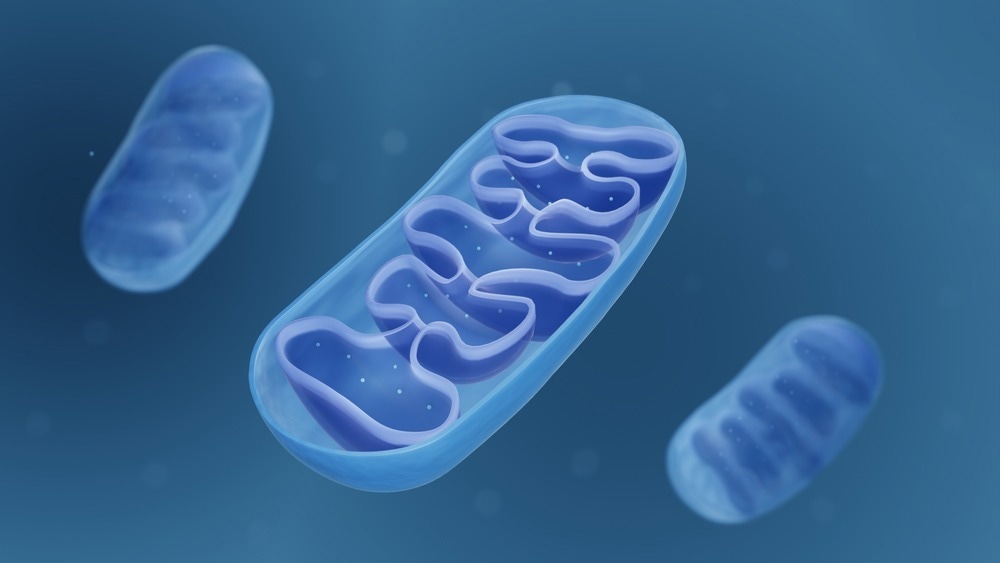In a recent study published in the Experimental Gerontology Journal, researchers reviewed the current knowledge related to the Mediterranean diet (MedDiet) and the role of mitochondria concerning health outcomes.
Study: Mediterranean diet and mitochondria: New findings. Image Credit: ART-ur/Shutterstock.com
Background
Subcellular structures called mitochondria are well-known for playing a crucial part in many energy processes. A growing body of research shows that mitochondria play a critical role in the physiological response to acute and chronic stress exposure.
This biological response to adversity in terms of psychological and health functioning raises interest in these organelles in several conditions common in older people.
Furthermore, supporting its role in reducing the risk of adverse health effects, MedDiet also appears to influence mitochondrial function.
The MedDiet and polyphenols
The MedDiet's abundance in polyphenols and other naturally occurring substances with strong antioxidant qualities, the ability to scavenge free radicals, and the capacity to control endogenous antioxidant defense mechanisms are well-evidenced.
Antioxidant enzymes in the mitochondria may play a role in these impacts. Because of their antioxidant qualities, polyphenols can lessen inflammation and mitochondrial malfunction linked to metabolic syndrome (MetS).
Additionally, in various experimental tests, the antioxidant abilities of the MedDiet polyphenols decreased the generation of mitochondrial reactive oxygen species (mtROS) and improved mitochondrial damage and apoptosis. Several studies have noted that MedDiet's high fiber level has health-promoting benefits.
Numerous in vitro studies assessed the advantages of diets high in polyphenols on MetS, which mediates mitochondrial regulation.
Human endothelial cells were used to assess the beneficial effects of chlorogenic acid (CGA) in apples and coffee beans against ox-low-density lipoprotein (LDL)-induced endothelial cell dysfunction in the form of an atherosclerosis cellular model.
By boosting silent mating-type information regulation 2 homolog-1 (SIRT1) activity and up-regulating adenosine monophosphate-activated protein kinase (AMPK) and peroxisome proliferator-activated receptor-gamma coactivator (PGC)-1 messenger ribonucleic acid (mRNA) to sustain mitochondrial biogenesis, CGA demonstrated mitochondria-mediated effects.
Additionally, CGA treatment had a cytoprotective impact by lowering endothelial cells' ROS generation.
Delphinidin in MedDiet
The presence of delphinidin in MedDiet reversed the increased amounts of mitochondrial respiration, mt-deoxyribonucleic acid (DNA) content, and complex IV activity in endothelial cells with vascular endothelial growth factor (VEGF)-induced mitochondrial dysfunction.
The expression of DNA polymerase gamma (PolG), nuclear-related factor 1 (NRF1), transcription factor B2 of the mitochondria (TFB2m), and transcription factor A of the mitochondria (TFAm) was also raised by delphinidin.
These proteins are all involved in the control of mitochondrial biosynthesis. Lycopene (LYC), a phytochemical belonging to the carotene family found in grapefruits and tomatoes, reduced mitochondrial malfunction to reduce inflammation in rodents subjected to lipopolysaccharide.
SIRT1, PGC1, cyclooxygenase 5b (Cox5b), cyclooxygenase 8b (Cox8b), cyclooxygenase 7a1 (Cox7al), and cytochrome c tissue mRNA were all increased by LYC.
Resveratrol and whole carbohydrates in the MedDiet
In MedDiet, whole carbohydrates are another important food group that positively affects metabolic disorders.
The Sirtuin 3-Forkhead box O3a (SIRT3-FOXO3a) signaling system is specifically activated by 5-heptadecylresorcinol, a biomarker for whole grain rye consumption, to defend against H2O2-induced oxidative stress detected in rat pheochromocytoma.
Additionally, it increased adenosine triphosphate (ATP) synthesis and cell metabolism by maintaining mitochondrial respiration and membrane potential while lowering the amounts of ROS in the mitochondria.
Resveratrol, present in foods like fruits, berries, and cocoa, has been shown in other research to have age- and dose-dependent antioxidant effects.
This polyphenol rivals nicotinamide to increase its function in a solubilized mitochondria complex. The reduced Firmicutes/Bacteroidetes ratio, which is instead elevated in obese patients and patients with systemic illnesses, is another manifestation of prebiotic resveratrol characteristics, which changes the variability and makeup of the gut microbiota.
The production of trimethylamine-N-oxide (TMAO), a byproduct of carnitine and choline, is decreased when resveratrol is administered. Since TMAO stimulates platelet activity and predisposes to thrombosis, a large concentration of TMAO is regarded as a risk factor for stroke and heart attack.
Short-chain fatty acids and metabolism
The end product of the intestinal microbiota's fermentation of insoluble fiber is short-chain fatty acids (SCFAs). Evidence shows that SCFAs can regulate several metabolic diseases, including obesity, insulin intolerance, and type 2 diabetes.
An SCFA found in the MedDiet, butyrate, encourages fatty acid metabolism and enhances mitochondrial activity. Significant quantities of polyunsaturated fatty acids (PUFAs) are present in MedDiet's nuts, vegetables, and seafood components. It is well known that PUFA consumption lowers the risk of developing cardiometabolic diseases.
Numerous human studies have shown the positive impact of the bioactive ingredients in the MedDiet on MetS, indicating improved health-promoting benefits by targeting mitochondria.
Additional pharmaceutical and nutraceutical benefits, particularly on the gastrointestinal system and muscular power, could be aided by this strategy.
Conclusion
The study findings showed that high-quality diets, like MedDiet, were linked to reduced amounts of oxidative stress and, consequently, a lower prevalence of diseases.
Future intervention studies are required to understand better how the MedDiet affects mitochondrial function and to highlight the significance of these cells in the pathophysiology of diseases common in elderly persons.
https://news.google.com/rss/articles/CBMib2h0dHBzOi8vd3d3Lm5ld3MtbWVkaWNhbC5uZXQvbmV3cy8yMDIzMDQwNy9NZWRpdGVycmFuZWFuLWRpZXQtYW5kLXRoZS1tb2R1bGF0aW9uLW9mLW1pdG9jaG9uZHJpYWwtZnVuY3Rpb24uYXNweNIBc2h0dHBzOi8vd3d3Lm5ld3MtbWVkaWNhbC5uZXQvYW1wL25ld3MvMjAyMzA0MDcvTWVkaXRlcnJhbmVhbi1kaWV0LWFuZC10aGUtbW9kdWxhdGlvbi1vZi1taXRvY2hvbmRyaWFsLWZ1bmN0aW9uLmFzcHg?oc=5
2023-04-07 11:57:00Z
CBMib2h0dHBzOi8vd3d3Lm5ld3MtbWVkaWNhbC5uZXQvbmV3cy8yMDIzMDQwNy9NZWRpdGVycmFuZWFuLWRpZXQtYW5kLXRoZS1tb2R1bGF0aW9uLW9mLW1pdG9jaG9uZHJpYWwtZnVuY3Rpb24uYXNweNIBc2h0dHBzOi8vd3d3Lm5ld3MtbWVkaWNhbC5uZXQvYW1wL25ld3MvMjAyMzA0MDcvTWVkaXRlcnJhbmVhbi1kaWV0LWFuZC10aGUtbW9kdWxhdGlvbi1vZi1taXRvY2hvbmRyaWFsLWZ1bmN0aW9uLmFzcHg
Bagikan Berita Ini















0 Response to "Mediterranean diet and the modulation of mitochondrial function - News-Medical.Net"
Post a Comment